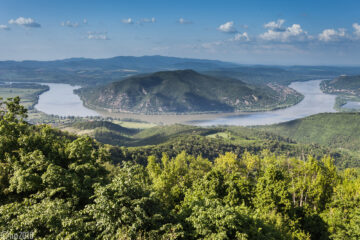Conference on Large Carnivores` Protection in the Carpathians
18 - 21 October 2021, Venue: Rožnov pod Radhoštěm, the Czech Republic
The Nature Conservation Agency of the Czech Republic together with the Secretariat of the Carpathian Convention would like to announce the Conference on Large Carnivores` Protection in the Carpathians.
Hotel Eroplán http://www.hoteleroplan.cz/
The Carpathian region harbours one of the most important large carnivore populations (the Eurasian lynx, the Brown bear, and the Grey wolf) in Europe. In addition to suitable habitats, the above mentioned mammalian species require extensive, non-fragmented habitats to establish their large home ranges and to allow long-distance movements. Despite their long-term protection in some countries within the region and their functional role as ecosystem keystone species, these top predators are still considered to be conflict species there.
Thus, the Framework Convention on the Protection and Sustainable Development of the Carpathians (The Carpathian Convention), namely its Protocol on Conservation and Sustainable Use of Biological and Landscape Diversity, together with the Carpathian Convention Working Group on Conservation and Sustainable Use of Biological and Landscape Diversity (The Biodiversity Working Group) pay special attention to effective large carnivores` conservation.
One of the main priorities of the Czech Presidency of the Carpathian Convention (2014-2017) has been to reduce landscape fragmentation, particularly caused by uncontrolled development of settlements and transport and other linear infrastructure. The issue is also closely related to the EU´s Green Infrastructure, dealing with landscape permeability and connectivity, and it uses, inter alia, the BioREGIO Carpathians Project outputs (Common Integrated Management Measures for Large Mammals) and experience of the sister Alps Convention.
Further, we would like to take the opportunity to enhance the necessary co-operation with other Carpathian countries in large carnivores’ protection and to support the reasonable coexistence of large carnivores with humans. We would like to share our knowledge of the topic with colleagues from Hungary, Poland, Romania, Serbia, Slovakia, and Ukraine. The conference offers a suitable platform to share knowledge and to exchange experience and to be a kick-off for further common dialogue on large carnivores’ successful survival within the Carpathian region.
The Conference will be held for experts from these target countries: the Czech Republic, Hungary, Poland, Romania, Serbia, Slovakia, and Ukraine.
The experts from other countries are also welcome.
Conference language will be English.
Conference Objectives:
- To share and to exchange information on large carnivores` monitoring and protection within the Carpathian region
- To establish an informal expert panel for large carnivores within the Carpathian Convention which will focus on developing and implementing future common large carnivores’ management plan in the Carpathians
- To establish a formal partnership between the Carpathian Convention and the International Council for Game and Wildlife Conservation (CIC)
Expected Results of the Conference:
- The representatives of the Member States of the Carpathian Convention will gain knowledge on large carnivores’ protection in other Carpathian countries
- The representatives from EU accession countries (Ukraine, Serbia) will gain knowledge on EU legislation on protection of large carnivores
- Transnational network will be established for further common Carpathian dialogue on large carnivores’ protection
The Conference will also include a meeting of the Carpathian Convention Biodiversity Working Group.
We are pleased to be able to cover all travel costs, including accommodation and food, for up to 3 – 4 delegates from each target country.
MEETING PRESENTATIONS
Tuesday 18th October 2016
- Barancekova et al Status of large carnivores in CZ
- Kadlečík_MANAGEMENT OF LARGE CARNIVORES IN SLOVAKIA-SNC
- Mysłajek_Poland_Lynx
- Nowak_WolfStatus_Poland
- Selva_Brown bear status and conservation in Poland
- Papp_Status of LCs RO
- Szemethy_LC conservationin Hungary
- Iakovliev_Shkvyria et al. Overview of current state of carnivores population
- Cirovic_LC Conference _Serbia
- Papp_Questionnaire_LCs Carpathians
- Papp_Project Database Carpathians
Wednesday 19th October 2016
- Šíma_Large carnivores-Roznov-20161019
- Marghescu_Introduction Platform CZ
- Hlaváč_Habitat fragmentation and large carnivores in the Western Carpathians
- Taras Bashta_Bear Project_2016_10_Carnivore
- Králik_Migration study of large mammals at highways in 10
- Kutal_2016
- Rigg_Slovakia-wolf-genetics
- Kubala_Rigg_Final seminar
- Finďo_et_al_conservation_management wolf in Slovakia
- Losinski_LCCZ16
- Groff – carpathian LC
- Favilli_Carpathians_LC
Thursday 20th October 2016
This project of the Conference is funded by the German Federal Environment Ministry’s Advisory Assistance Programme (AAP) for environmental protection in the countries of Central and Eastern Europe, the Caucasus and Central Asia and other countries neighbouring the European Union. It is supervised by the Federal Agency for Nature Conservation (BfN) and the German Environment Agency (UBA).
The responsibility for the content of this document lies with the authors.
















